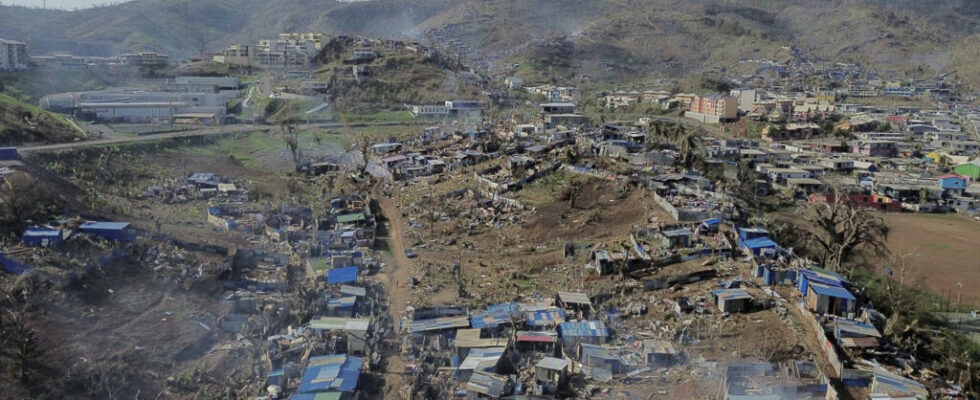Prime Minister François Bayrou estimated at the start of the week that the number of deaths after the passage of Cyclone Chido in Mayotte would amount to “ tens » and not in “ thousands “. The latest report from the prefecture, dated December 24, shows 39 deaths. For Delphine Grancher, engineer at the CNRS physical geography laboratory, who worked on the consequences of Hurricane Irma in Saint-Martin in 2017, the figures put forward by François Bayrou are credible. She estimates that in the absence of landslides and major flooding waves, the number of victims is not expected to increase.
4 mins
RFI: The day after the disaster in Mayotte, prefect François-Xavier Bieuville spoke of “ several hundred deaths, even a few thousand “. Then, the television channel Réunion la 1ʳᵉ put forward the figure of 60 000 dead, based on estimates from rescuers, before withdrawing this announcement. How to explain this discrepancy with the figure of 39 deaths ?
Delphine Grancher : It was suspicions that hundreds or thousands of deaths were feared. And afterwards, these were people who continued to say that there were surely thousands of deaths who had not yet been discovered and whose existence was suspected. So this is really in opposition to the official results which are gradually stabilizing. In fact, these figures come from reactions that we observe all the time after disasters. There are rumors about the number of shrouds sent, coffins, death estimates which are always catastrophic. It’s a reaction that is completely understandable, already because the images are extremely impressive. There was nothing left, we were very scared. People who know residents in Mayotte have gone without news for several days, sometimes even a week, and so we inevitably imagine the worst. Gradually, people will obtain information, but there is a dissonance with their initial idea that there were thousands of deaths. And as we find people, they imagine that the dead are in another neighborhood, a poorer area with people we know less, on another part of the island. This reaction is the same one that we observed after Irma in Saint-Martin.
How to establish a reliable count of victims to counter this false information which fuels panic ?
The French system means that we will never have an official list which will be published by the authorities, with the names of the people and in what circumstances they died. That will be the job of journalists. In very few cases, we have official broadcasts. In fact, the results come from different communications. First there are those of the hospital, which will be crossed with those of the funeral directors. At the moment, town halls, with religious authorities helped by the police and associations, are trying to identify the number of deaths which did not take place in hospital and would not be recorded in official data.
Muslim rites, which provide for burying the deceased 24 hours after death, are the majority on the archipelago. Could they be distorting the real death toll? ?
The fact that Muslim rites involve people being buried quickly does not prevent counting the dead or announcing to families and loved ones that a person has died. December 26 marked the 20th anniversary of 2004 tsunami. We had hundreds of thousands of deaths in a province that was Muslim in Indonesia. The number of deaths has not been hidden. People searched for the dead with official lists and tried to find their loved ones. The connection between the two doesn’t really make sense. To bury someone, you need several people. There are associated rites, there are prayers. There are families who are in mourning, unfortunately. And they don’t hide their grief, they don’t hide the fact that someone is dead. This idea that people who are undocumented would hide their deaths makes no sense. In any society, being undocumented simply means that you are not legal under French law. This doesn’t mean that we don’t have family, that we don’t have friends, that we don’t have a job or that we don’t earn some money. People are in a society. They are surrounded, when they get married, when they are born or when they die, they have their loved ones who perform the ceremonies with them, as in all families in fact.
Also readCyclone Chido in Mayotte: “The population was not at all prepared”
